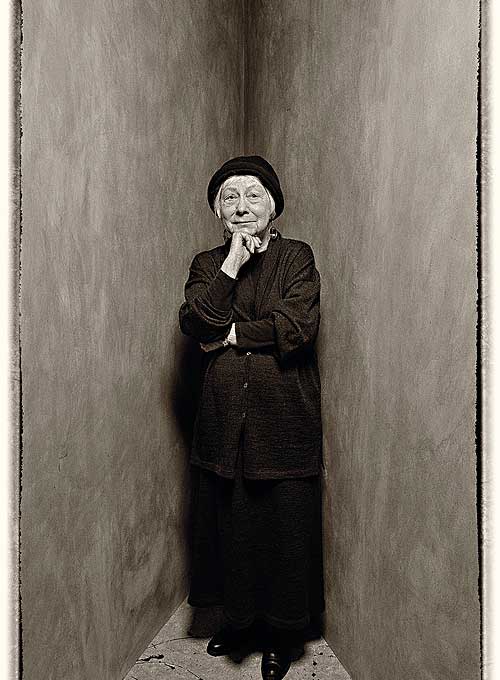
I first met San Francisco Bay Area actress and director Barbara Oliver in 1991, when she interviewed me for the position of general manager for a new theatre company she was founding. I had recently moved to San Francisco from Manhattan and was producing solo artists, not plays. This was pre-Google, and I had no idea who she was.
Among the things I didn’t know: Barbara had completed her acting and directing training in 1949 at Carnegie Tech, now Carnegie Mellon University, and 10 years later settled in Berkeley, where her husband William taught in the theatre department at the University of California. In the late ’60s, she began acting at Berkeley Repertory Theatre, and, in 1991, she developed, with writer Dorothy Bryant, a play inspired by the correspondence between Gustave Flaubert and George Sand, entitled Dear Master. The production, in which she played Sand, was hugely successful, and the experience inspired her to start her own theatre company named after Sand’s birth name (Amantine Lucile Aurore Dupin). She was going to call it Aurora Theatre Company.
I recall that my appointment with Barbara was somewhat late at night in an ornate building called the Berkeley City Club, designed by architect Julia Morgan as a mini-version of her more famous Hearst Castle. The interviews were running overtime when out from a dark corridor came Barbara, a petite woman with luminous white hair cut sharply in a Louise Brooks kind of bob. Barbara was 65 then, and I was 38. She introduced herself, apologized for the delay and then disappeared back into the little room where she and I would eventually produce 36 plays over the next 9 years.
My previous regular job had been at NYC’s Public Theater, working directly for the great producer Joseph Papp. So sitting in this “little castle” and contemplating teaming up with this unknown woman seemed like an unbelievably bad career move. But the interview went well. And Barbara’s vision for her company was intriguing.
We were to be born as a full-fledged Equity house with seating capacity of 67. Obviously, we weren’t going to have the kind of income that would enable us to pay artists what they were worth, but we could offer them a nurturing, respectful environment. Neither would we be an organization flying by the seat of its pants, as Barbara wasn’t particularly interested in creating art out of chaos. We were going to be a theatre with a strong subscription base from the very beginning.
One reason Barbara started Aurora was that she was tired of playing “nannies and grannies.” She did not like being perceived of as a little old lady! Most theatre companies are started by groups of kids fresh out of college, but here was a 65-year-old woman with the chutzpah to start one from scratch.
After six or seven years of sold-out houses, Barbara’s mantra became, “We need to grow or die.” So, in 2001, with the help of many generous people, we moved into Berkeley’s newly formed arts district and built our own 150-seat theatre right next door to Berkeley Rep. Barbara is quoted as saying, “What matters to me…if there’s going to be any kind of memory of what I do, I suspect it will not be bricks and mortar. I would far rather have it be the kind of theatre that’s done in that space.”
And what was that work? Plays that placed a high value on words and ideas, primarily. In an article for San Francisco Magazine, Michael Scott Moore wrote that Aurora was a “no-nonsense literary theatre with excellent acting and intelligent scripts. Aurora’s plays, when they’re political, like to investigate rather than preach. They tend to poke around in the roots of liberal myths and ideals.” I’d like to think that we’re still investigating those liberal myths and ideals to this day.
Barbara stepped down as artistic director in 2004, but remained active as a director and actor. This past October, she directed a collection of Thornton Wilder one-acts. She passed away from a stroke in May.
On June 17 almost 600 theatre artists—including Barbara’s daughter, costume designer Anna Oliver, and her son, actor Søren Oliver—and a cavalcade of friends gathered to remember Barbara’s vast contributions. We thanked her for her leadership, artistry and generosity. She will remain a true inspiration.
Tom Ross is artistic director of Aurora Theatre Company.

